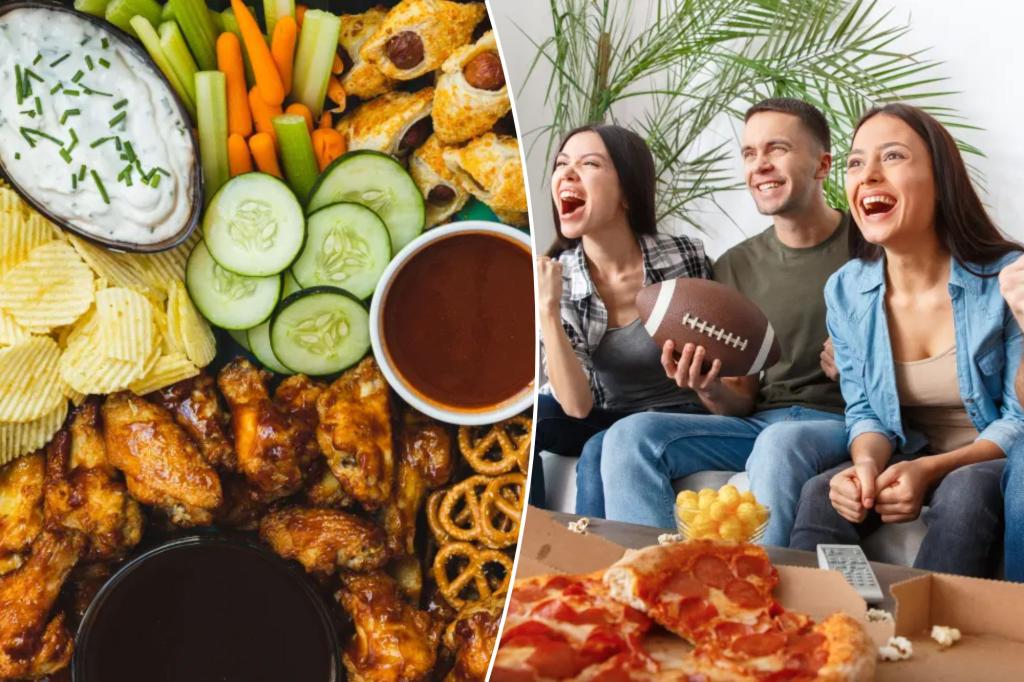Super Bowl Sunday: A Celebration of Food, Football, and Recovery
The High-Calorie Tradition of Super Bowl Sunday
Super Bowl Sunday is a day of celebration, excitement, and indulgence. It’s not just about football; it’s also about the food. A recent study by Levity reveals that the average Super Bowl meal is a staggering 3,506 calories, which is more than what most people consume in an entire day. This massive intake of food, combined with the excitement of the game and the social atmosphere, makes the day a perfect storm of overeating. Registered dietitian Courtney Smith notes that the Super Bowl has become a time of feasting, but it doesn’t have to leave you feeling terrible the next day.
The Aftermath: "Super Sick Monday"
The combination of stress from the game, alcohol, and heavy snacking takes its toll on millions of Americans. More than half of football fans wish that the Monday after the Super Bowl was a national holiday to recover from the effects of the previous night’s indulgence. This phenomenon, often referred to as "Super Sick Monday," results in millions of people skipping work or feeling unwell. While this might seem like a joke, it highlights the importance of being mindful of what we eat and drink during the game.
Mindful Eating: A Key to Enjoying the Game Without the Guilt
To combat the bloat and bad feelings that often follow a day of overeating, Smith recommends a few simple strategies. First, she suggests previewing the spread before loading up your plate. Walking through the buffet or spread gives you a chance to make intentional choices about what you want to eat. Research shows that distracted eating, such as eating while watching TV, can lead to overconsumption. Smith advises against mindless snacking and encourages people to be mindful of their eating habits during the game.
Making Healthier Choices on Game Day
While some snacks are undeniably unhealthy, there are ways to make better choices. For example, jalapeño poppers, which are often high in calories and fat, can still be enjoyed in moderation. Smith suggests limiting yourself to just one or two poppers instead of overindulging. Other snacks, like chili, can actually be a healthy option if made with lean meat and beans. These ingredients provide protein and fiber, which can keep you full longer and reduce the temptation to snack on less nutritious options.
Surprisingly Healthy Snack Options
Some game-day staples might be healthier than you think. Potato skins, for instance, are often villainized, but they can be a good choice if prepared correctly. Baked potato skins are a great source of fiber, especially when you keep the skin on. However, it’s important to go easy on the toppings, like cheese and sour cream, which can add unnecessary calories. Another surprisingly healthy option is a fruit and veggie plate with dips like guacamole or hummus. Smith even suggests making a high-protein ranch dressing by using a Hidden Valley Ranch Seasoning packet with nonfat Greek yogurt instead of mayonnaise.
Enjoying the Game in Moderation
Ultimately, the Super Bowl is just one day a year, and it’s okay to indulge in your favorite snacks. The key is to do it in moderation. Smith emphasizes that it’s important to enjoy the game and the food without feeling overly restricted. If you choose to have a guilty pleasure, that’s okay—as long as you balance it with healthier choices. By being mindful of what you eat and how much you eat, you can enjoy the game without feeling terrible the next day. After all, it’s about finding a balance between having fun and taking care of your body.












